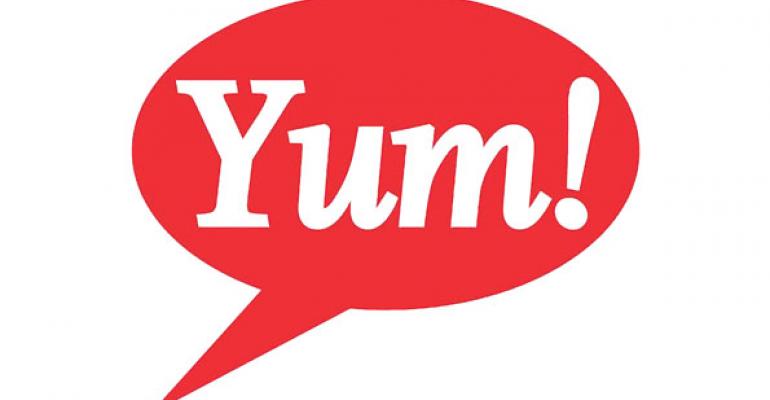Yum Brands Inc. might sell a 20-percent stake in its China operations as part of an upcoming spin-off, the Wall Street Journal reported Wednesday.
According to the report, Yum is in talks with private-equity groups in the hope of selling a 19.9-percent stake in the business to avoid a tax bill in the upcoming spinoff and potentially add China know-how to the operation. The Wall Street Journal said the business could be worth close to $10 billion.
“We continue to make good progress since we announced the transaction separating Yum and Yum China into two powerful, independent, focused growth companies. We will provide updates on the transaction at appropriate times and we won’t comment on rumors or speculation,” said a Yum spokesperson.
Yum is planning to spin off its China operations this year, which would make that business a franchisee of the Louisville, Ky.-based operator of KFC, Pizza Hut and Taco Bell.
Yum has built an impressive business in fast-growing China. But it has largely done so through company-operated locations, while it mostly franchises everywhere else.
China’s surging growth has been good for Yum, with system sales growth in that country of 35 percent in 2011 and 23 percent in 2012, according to Securities and Exchange Commission filings.
Yet those sales have stagnated the past couple of years due to a pair of food-safety scares that, in particular, hurt business at KFC in the country. China revenues in 2015 were just more than $6.9 billion, roughly the same as in 2013.
The slowed sales have put pressure on Yum to do something with the China business because Yum is so dependent upon it for revenues and profits.
Yum has 7,176 locations in China as of the end of 2015, according to its most recent annual report. That is just 17 percent of the company’s more than 42,000 global locations.
But, because those locations are mostly company operated, the China business accounted for 53 percent of Yum revenues last year, and nearly 40 percent of the company’s operating profits.
Greg Creed, Yum CEO, said at a recent conference call that the spin-off would create “two powerful, independent growth companies,” and that Yum China will be able to grow after the separation.
Yum China doesn’t have any external debt and has been able to self-fund its growth for the past decade, and still has considerable runway for growth. Yum China plans to open the first Taco Bell location later this year.
“China has earned the right to be independent,” Creed said.
Update: March 24, 2016 This story has been updated to include a comment from a Yum Brands spokesperson.
Contact Jonathan Maze at [email protected]
Follow him on Twitter: @jonathanmaze





